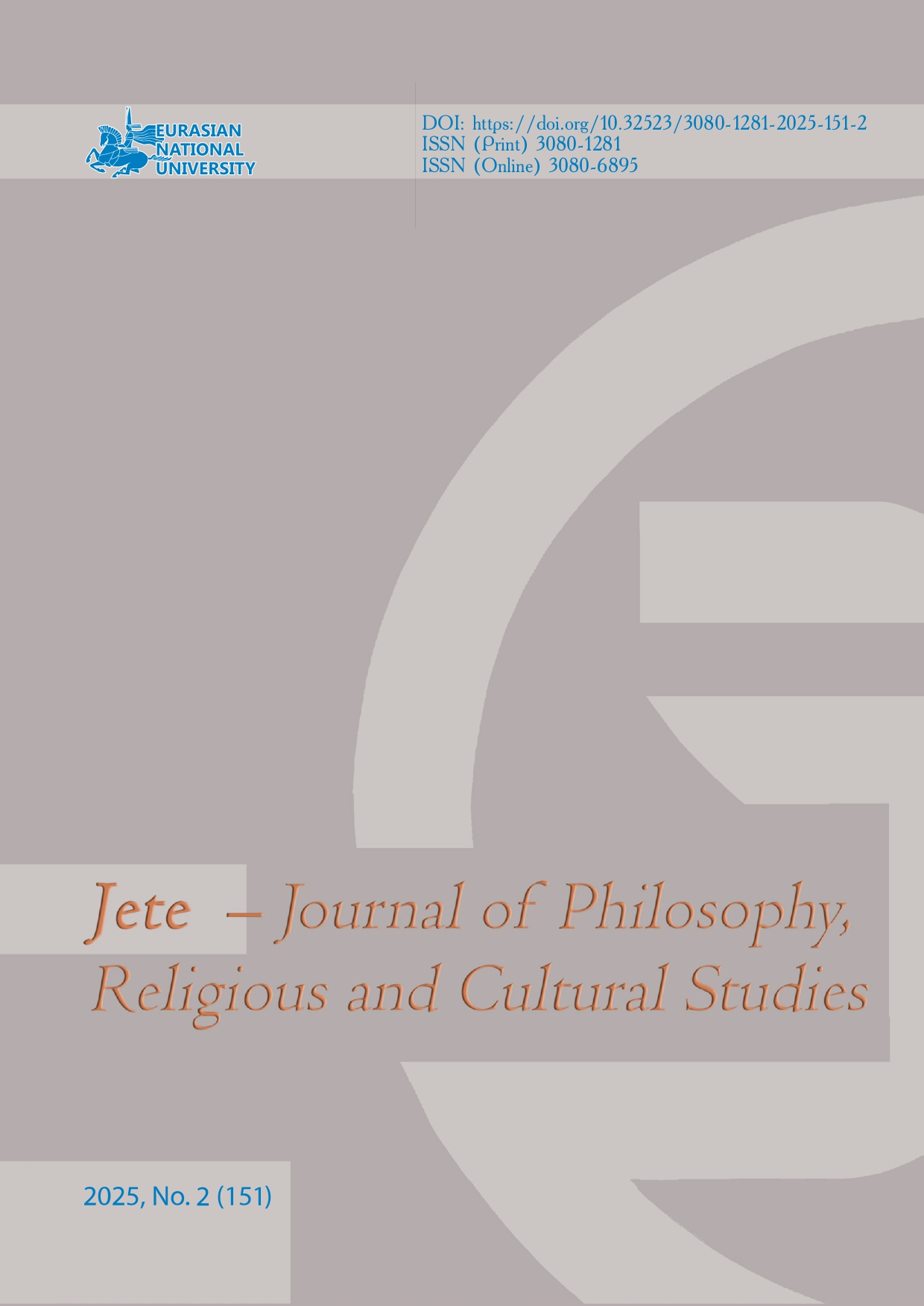From islamic philosophy to european enlightenment: the influence of Ibn Rushdн Рушдтың әсері
Scientific article
Views: 177 / PDF downloads: 203DOI:
https://doi.org/10.32523/3080-1281-2025-151-2-25-36Keywords:
Ibn Rushd; Aristotle; Scholastic thought; Averroism; Renaissance; enlightenment; mind-revelationAbstract
This article discusses the influence of ideas of the Islamic Philosopher ibn Rushd (Averroes) on the European intellectual world and how it contributed to the enlightenment process. Ibn Rushd, through his interpretations of the works of Aristotle, played an important role in the development of philosophical and scientific thought both in the Islamic world and in medieval Europe. His views on the relationship between reason and revelation, his views defending the independence of reason and supporting rationalist epistemology, gained popularity in Western thought, especially through his works translated into Latin in the XII-XIII centuries. Ibn Rushd's works were discussed by such thinkers as Thomas Aquinas, Siger de Brabantia, and Dante, which paved the way for the emergence of a philosophical current called "averroism". His explanations based on reason were an important reference in the process leading to Renaissance thought and later to the European Enlightenment. In addition, the ideas that he adhered to that scientific knowledge could exist without contradicting religious authority contributed to the development of modern secular thought. This study examines the historical process of the transition of Ibn Rushd's ideas to Western philosophy and analyzes its influence on science, philosophy and theology in Europe. It also aims to reveal the role of Islamic philosophy in intellectual transformation in Europe by discussing the influence of its rationalist heritage on the philosophers of the Enlightenment.
Downloads
References
Adamson, P. & Taylor R.C. (2007). İslam Felsefesine Giriş [Introduction to Islamic Philosophy] (Cüneyt Kaya, Trans). İstanbul: Hacitepe Yayinevi. [in Turkish]
Dag Nikolaus, Hasse (2007). Arabic Philosophy and Averroism. The Cambridge Companion to Renaissance Philosophy. James Hankins (Ed.). London: Cambridge.
Dag Nikolaus, Hasse (2009). Latin Averroes Translations of the First Half of the thirteenth century. [Electronic resource]. – Access mode: www.philosophie.uniwuerzburg.de/fileadmin/06010000/temp/Palermo30.06.09.pdf
Ibn Rushd (1875). Risalatun-Nafs (Gerard Gilham, Trans). Beirut.
Ibn Rushd (2004). Metaphysician sharqy (Muhitdin Majit, Trans). Istanbul: Litera yayincilik. [in Turkish]
İbn Rüşd (1992). Faslu’l-makâl, Felsefe-Din İlişkisi [Faslu’l-makâl, Philosophy-Religion Relationship] (Bekir Karlığa, Trans). İstanbul: Isaret. [in Turkish]
Karlığa, H. B. (1999). İbn Rüşd [Ibn Rushd]. İstanbul: TDV İslam Ansiklopedisi. [in Turkish]
Kutluer, İlhan (1996). İslam Düşüncesi Tarihi [History of Islamic Thought]. İstanbul: Insan. [in Turkish]
Macit, Fahri (1992). İslam Felsefesi Tarihi [History of Islamic Philosophy]. İstanbul: Nadim kitap. [in Turkish]
MacClintock, Stuart (1972). “Averroism”, The Encyclopedia of Philosophy. Paul Edwards (Ed.). (Vols. 1). Newyork, London.
Majid, Fakhry (2002). Averroes (Ibn Rushd): His Life, Works and Influence. London: Oxford.
Rosenthal, Franz (2007). Knowledge Triumphant: The Concept of Knowledge in Medieval Islam, 2. Leiden-Boston: Brill.
Sarıoglu, H. (2006). Ibn Rüsd Felsefesi [The Philosophy of Ibn Rüsd]. Istanbul: Klasik Yayınları. [in Turkish]
Sandybayev, Zh. & Abzhalov, S. (2021). The problem of "knowledge" and "faith" in Ibn Rushd's philosophy // Bulletin of KazNU, Religious Studies, 27(3), 4-11. [Electronic resource]: https://doi.org/10.26577//EJRS.2021.v27.i3.r1
Sarıoğlu, H. (2019). Ortaçağ felsefesi II [Medieval philosophy II.]. Eskişehir: Anadolu üniversitesi yayını, Açıköğretim fakültesi yayını. [in Turkish]
Seitakhmetova, N. & Turganbaeva, Zh. (2019). Inclusive Adaba humanism in the formation of person’s identity: from Ibn Rushd to Sardar. The world of man, Vol. 2, 80, 192-202.
Uludağ, S. (2004). İbn Rüşd, Hayatı-Eserleri-Görüşleri ve Felsefe-Din İlişkileri, Fasl’ul Makal el-Keşf an minhaci’l-edile [Ibn Rushd, His Life-Works-Opinions and Relations between Philosophy and Religion, Faslal-Maqal al-Kashf an minhaj al-edile.]. İstanbul: Dergâh Yayınları. [in Turkish]
Downloads
Published
Issue
Section
License
Copyright (c) 2025 Бауыржан Ботакараев, Фэриде Камалова, Акмоншак Усаинова, Муратбек Мырзабеков (Автор)

This work is licensed under a Creative Commons Attribution-NonCommercial-NoDerivatives 4.0 International License.













